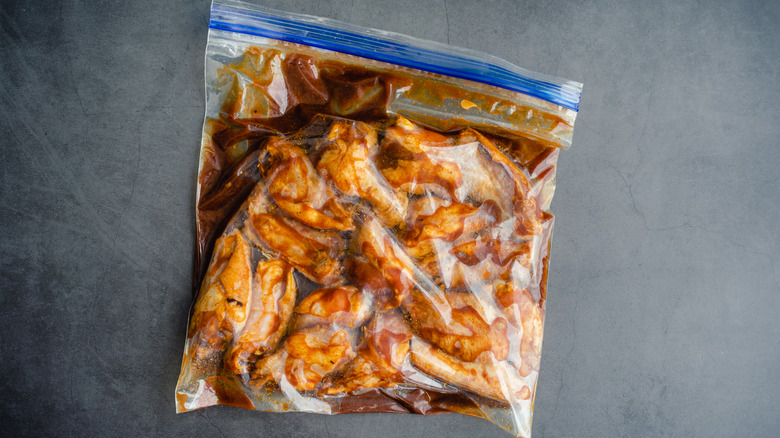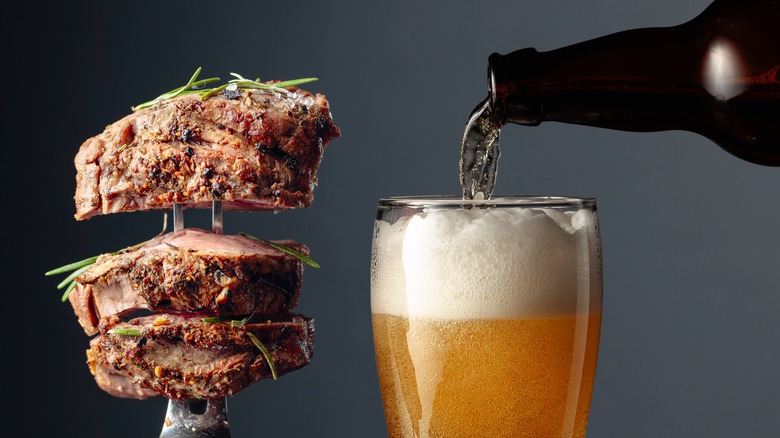Don't Rely Solely On Alcohol To Kill Bacteria When Marinating Meat
If you aren't vegetarian, vegan, or a pescatarian, odds are that meat is a major part of your daily diet! Sizzling bacon with eggs for breakfast, a ham and cheese sandwich for lunch, and steak and potatoes for dinner are all common meaty meals people, at least in America, indulge in quite often. And though CBS News reports that the prices for meat are at record highs; people don't seem to want to stop enjoying their favorite meals. When you get yourself a nice cut of meat, there are a few steps to take to ensure that it is safe to eat and cooked to your liking, but one of the most important elements to preparing your choice of meat is making sure it is flavorful.
Sure, you can pour A.1. sauce onto your steak, pork, or other protein after it's finished cooking or slather it with some seasoned butter, but if you really want your meat to shine on its own, it is important to marinate it. According to Wholey, marinating is a fantastic method to use to keep your food from drying out and becoming bland, but you must keep your animal product cold and refrigerated even while marinating or else harmful bacteria and other germs could contaminate it. However, some people mistakenly believe that if they use alcohol to marinate their meat, they don't have to worry about bacteria, and that is simply not the case.
Alcohol doesn't fix everything
Healthline tells us that, yes, while alcohol does help to kill some germs through the process of denaturation, it has to have an incredibly high alcohol by volume (ABV). The site says that concentrated alcohol between 60-90 percent is good for some disinfectant purposes; however, alcohol concentrate isn't meant to be consumed at all, and the alcohol you're probably using to marinate your food such as bourbon, whiskey, or wine are not powerful enough to eliminate all harmful bacteria.
As for what could be lurking in or on your meat, the CDC says that raw products may contain Salmonella, E. coli, Yersinia, and other potentially dangerous bacteria that a simple splash of drinking alcohol won't kill. According to the USDA, spirits, wine, and beer have been proven not to have any detrimental effect on bacteria. And while soaking your food in the substances might make for a more flavorful dish, it will not save you from potential germ-related sickness, only thoroughly cooking your meat and poultry will do that. The government site recommends reaching an internal temperature of 165 degrees Fahrenheit for poultry and 145 degrees Fahrenheit for red meat to kill off the bacteria and ensure your meat is safe to consume.

